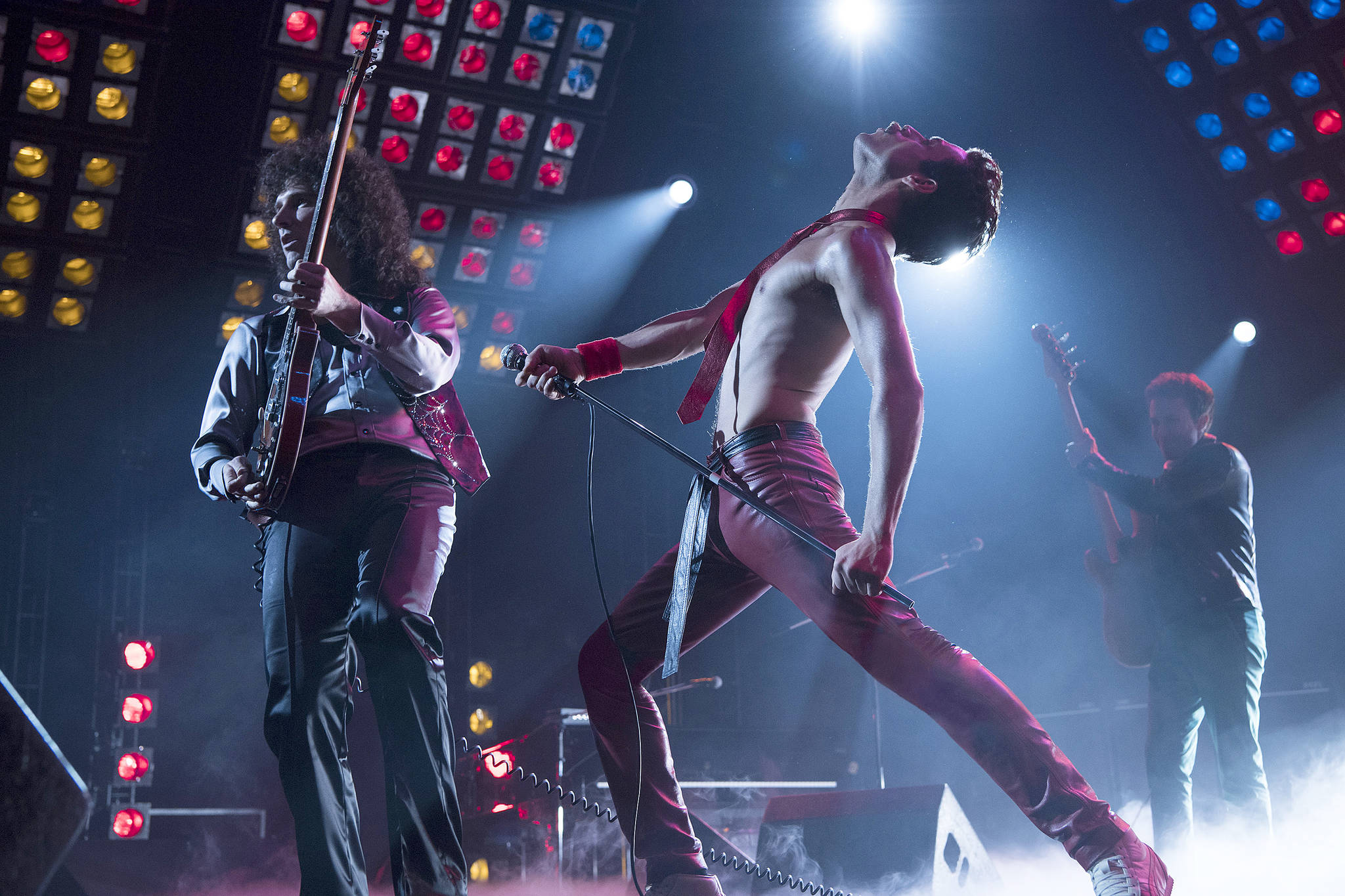It occupies only a small part of the movie, but Mike Myers’ casting as a skeptical record executive in Bohemian Rhapsody is a masterstroke. Haloed by a 1970s perm and growling with philistine contempt for the arty band in his office, Myers gives the movie audience something tangible to root against. He thinks the members of Queen are all wrong about their approach to rock, insisting the operatic six-minute single (which gives the movie its title) won’t get played on the radio. Myers revels in the character’s boorishness, and we chuckle, knowing how wrong he is. The capper is an inside joke: Myers declares that “Bohemian Rhapsody” will never be the kind of song kids rock out to in their cars, exactly describing a famous scene from his own Wayne’s World.
If only the rest of this movie had this kind of loose, wacky vibe. Most of Bohemian Rhapsody plods ever-so-seriously through the saga of Queen and, more specifically, the band’s flamboyant front man, Freddie Mercury.
Mercury, played by Rami Malek, could never have lived an ordinary life: Born Farrokh Bulsara, of Parsi descent, he spent his youth in Zanzibar and India, cursed with buck teeth and blessed with an four-octave singing voice. Insatiable in appetite (to borrow one of his lyrics), Mercury willed himself to glittery rock stardom and led Queen through a series of highly eccentric albums before AIDS cut his trajectory short in 1991. Best known for Mr. Robot, Malek gives an energetic performance as Freddie, but doesn’t provide many clues about what makes him tick. Malek has a tendency to stare blankly in exactly the same way whether Freddie is breaking up with a longtime girlfriend (Lucy Boynton) or making his very traditional parents aware that he might be gay.
The other members of Queen are ably played by Gwilym Lee, Ben Hardy, and Joseph Mazzello, all of whom fit easily into their big hair. Malek has a harder time with his false teeth; some of his line readings have the quality of a ventriloquist throwing his voice while drinking a glass of water.
Bohemian Rhapsody is directed by X-Men helmer Bryan Singer, at least the parts that weren’t directed by an uncredited Dexter Fletcher, hired when Singer was fired from the project after a series of mysterious absences. The film, made under the close supervision of the surviving members of Queen, has a dutiful, respectable air about it. It rather sanctimoniously portrays the concern of Mercury’s bandmates when his excesses became especially naughty—though not naughty enough here to violate the PG-13 rating. At the same time, it makes clear that the singer’s problems were driven by loneliness. “Can you see me?” he says, flicking his light on while standing in his apartment window—the needy motto of the born performer. It’s all very neat and packaged.
Someone had the wise idea to end the film with a re-creation of Queen’s supercharged performance at Live Aid in 1985, which of course includes the arena-torching anthem “We Are the Champions.” Effective enough, but the Freddie Mercury depicted in Bohemian Rhapsody lacks a true sense of wildness. The guy who wrote “Killer Queen” must have had a streak of crazy, ambitious inspiration in him. This movie doesn’t unleash that.
Bohemian Rhapsody
Opens Thursday, November 1 | Rated PG-13








